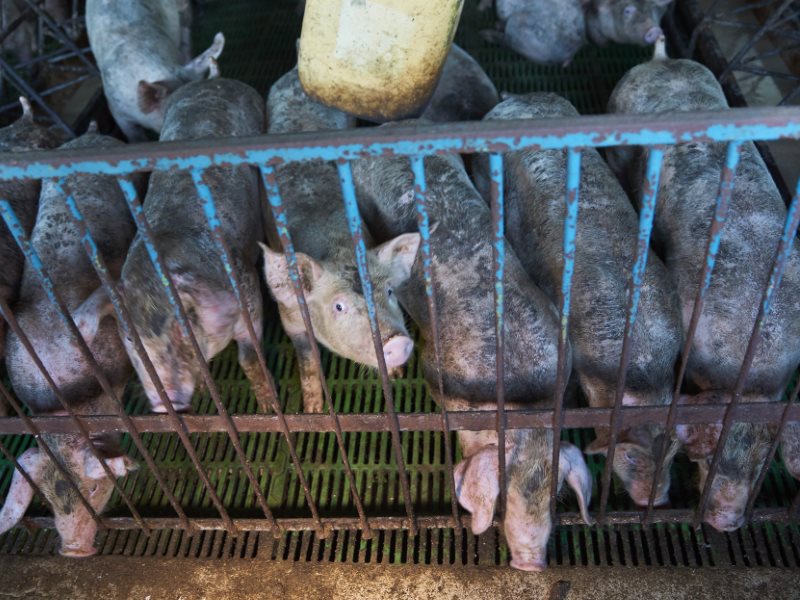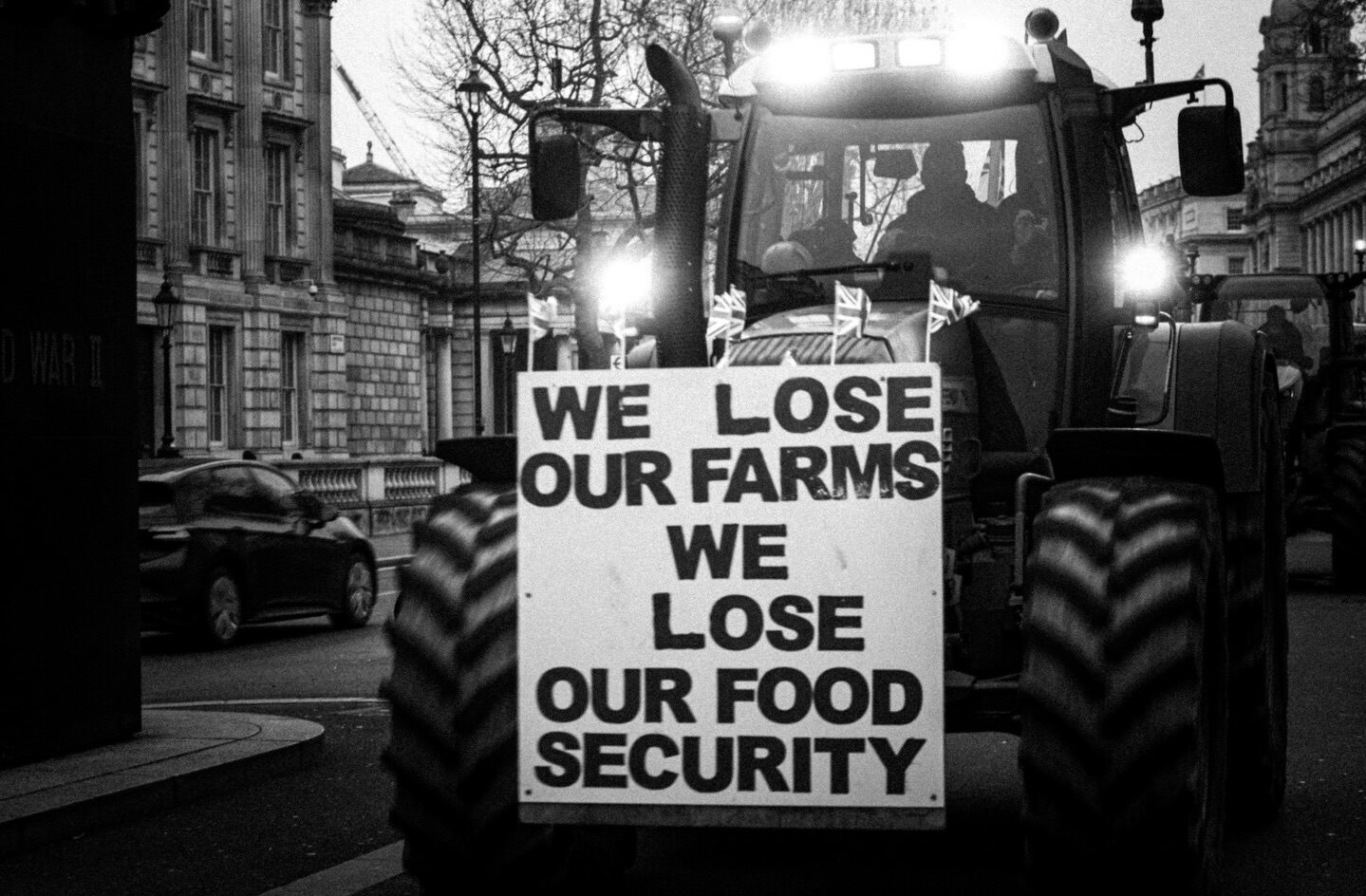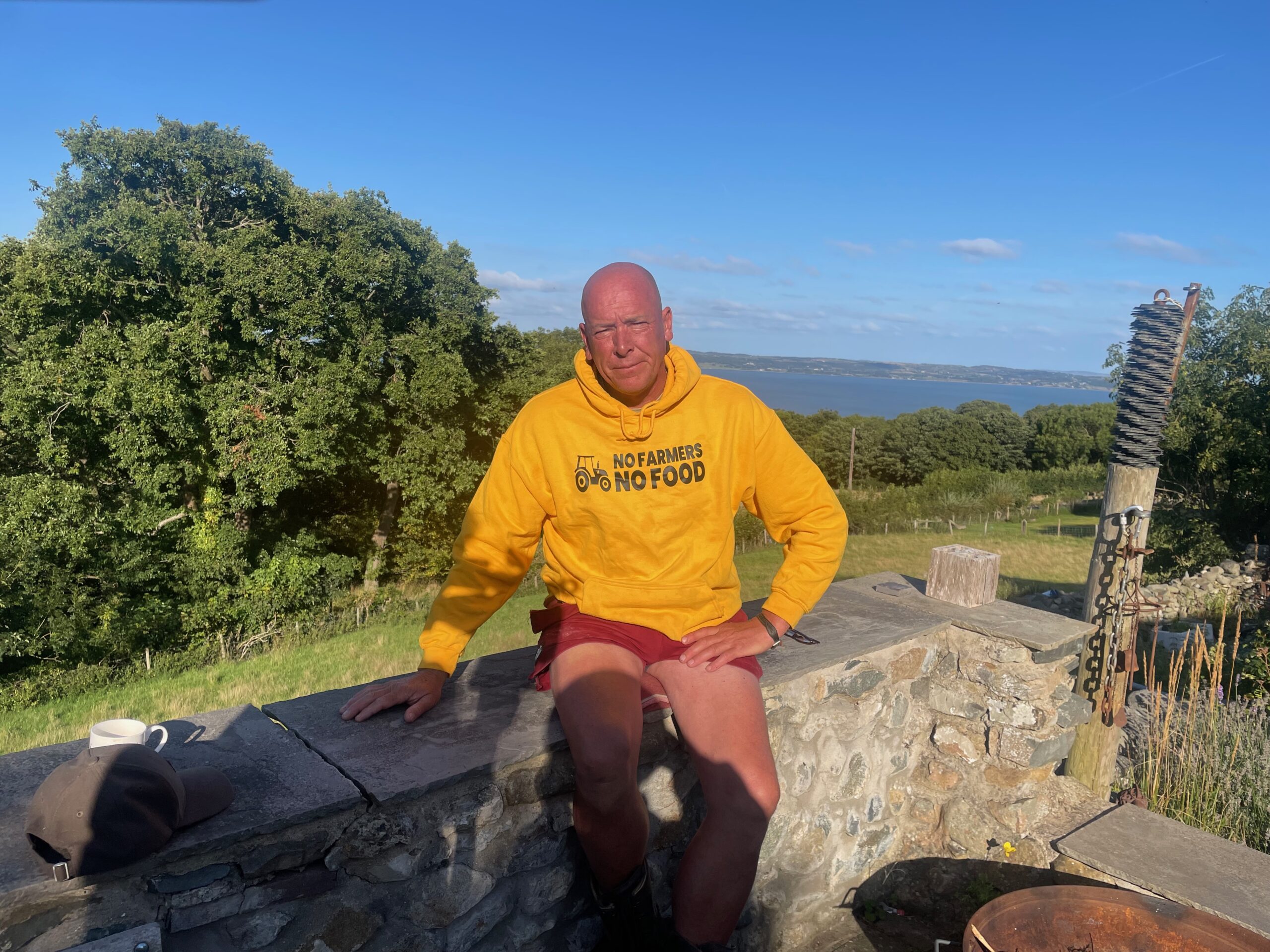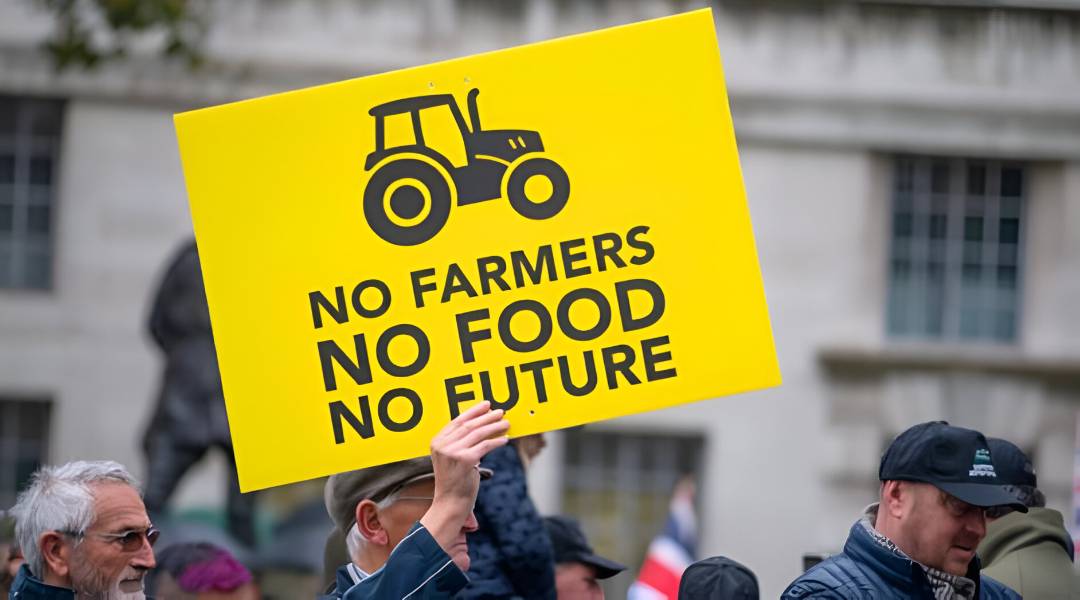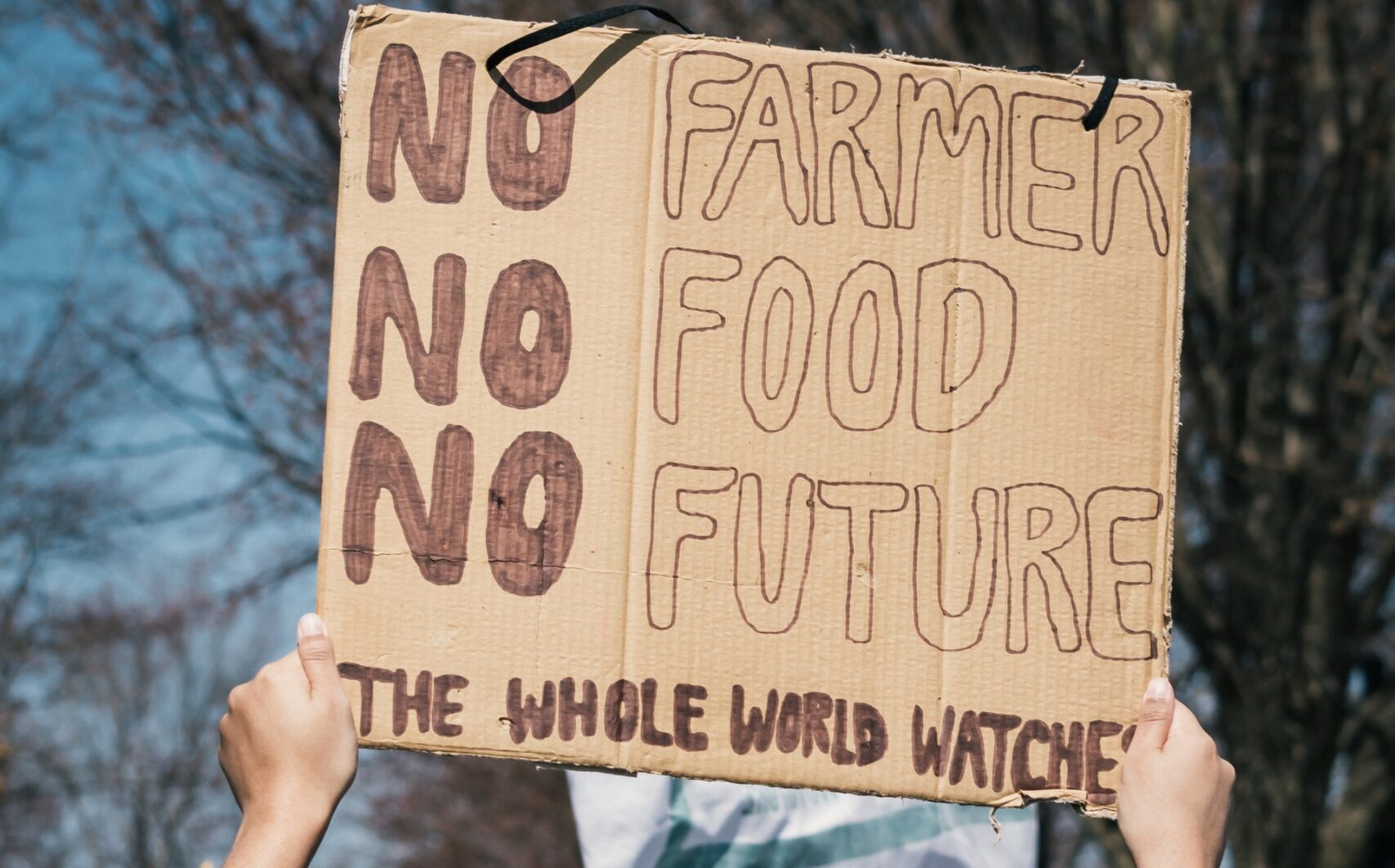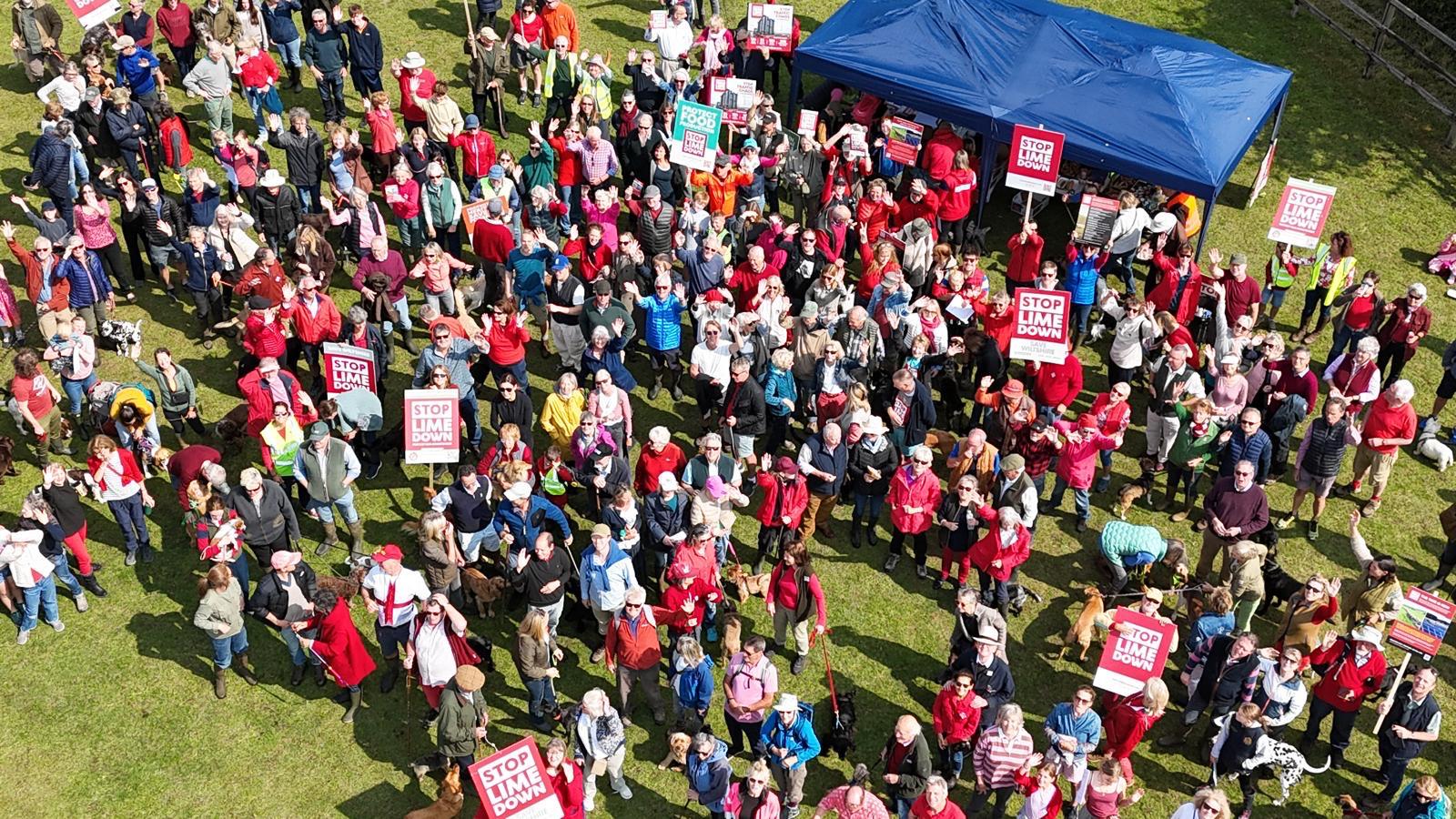From Salt to Smoke is a butcher and charcuterie business that started up during the coronavirus, sourcing their pork from British heritage pig breeds that pannage on common ground in the New Forest. Pannage pork dates back to the reign of William the Conqueror; the original idea was to put pigs out first to hoover up the acorns as they made the other animals like horses unwell.
Comparing their pork with the supermarket, Erica Golding, co-founder of From Salt to Smoke says, ‘The most glaring difference is value for money, you do get a cheaper product from the supermarket but our product has more flavour and you get more for your money’.
Government failing ‘Red Wall’ voters on public procurement
When public procurement was governed by EU trade rules, national governments were prevented from favouring national production – price alone dictated procurement choices. With cheap substandard food imported from both new entrant EU countries and, due to bilateral treaties, numerous other countries, many farmers and consumers voted leave in the 2016 referendum. In their 2019 Party Manifesto, the Tories carried their alleged Brexit agenda of ‘taking back control’ into the election with a promise that has singularly failed to be fulfilled;
“When we leave the EU, we will be able to encourage the public sector to ‘Buy British’ to support our farmers and reduce environmental costs”
Inevitably, this promise saw swing voters in five Labour “Red Wall’ constituencies vote Conservative in the December 2019 election. However, post transition from the EU there is little sign of our farmers benefiting from the £3 billion spent annually on procuring food for schools, hospitals, prisons, government agencies, and other public bodies, not least the armed forces.
As described in an Eating Better consumer survey; ‘There was no appetite to change or trade away standards and in fact those surveyed wanted the government to do more to support farmers and level the playing field to see off any cheap, lower quality products from countries like the US. Many of those who took part in the research stated that they had voted Conservative believing that Brexit would benefit British producers’.
As reported in this Sustain article, the Environment, Food and Rural Affairs (EFRA) committee has become the latest group to urge the Government to make public sector food reflect the UK’s net zero commitment and give more support to UK producers. The RSPCA issued their own call to the government to improve the animal welfare of public sector food, calling the current standards ‘baseline at best’ and warning that our public institutions risk propping up the worst kind of farming practices.
Even the giants want to be protected from absurdity!
The philosophical basis of global trade is even being challenged by a few industry leaders as many international supply chains have been fractured during the Covid-19 crisis. Many are complex; a dose of the BioNTech/Pfizer vaccine, for example, requires 280 components from multiple countries, according to the company.
Currently about 80-95% of trade is carried by sea. Two million merchant seamen deliver a wide range of goods, ranging from oil, gas and iron ore, to grain, fresh fruit, medical supplies, TVs and automobiles.
The Covid Recovery Commission is a group of business leaders headed by John Allan, Tesco chairman, who also chairs Barratt Developments. They are advising the Government to support certain British industries post-Covid by using state procurement to create a ‘Great British Supply Chain’.
“The UK should use its post-Brexit freedoms to create domestic supply chains that rely less on foreign companies . . . It may sound like turning the clock back, but it is necessary. There are great advantages if you have short domestic supply chains – you can be much more flexible and respond more quickly to changes in demand.” John Allan.’
Though I doubt small scale independent businesses, not least farmers, are to get the support deserved and needed to stay in business, amazingly Farms not Factories is named in the above article endorsing protectionism!
‘Farms not Factories’ reflects that it was another example of the chaos caused by long food chains.
200,000 animals were feared to be likely to die in the tail-back at both ends of the Suez canal, which could have been the worst maritime animal welfare tragedy in history. Visible results of the current Brexit chaos and the Covid pandemic also included suffering livestock on overcrowded lorries and rotting meat at the UK/EU border.
In an April newsletter, Tracy Worcester warns that – unless we change course worldwide towards more local production for local consumption – global supply chains serving corporations will continue to be vulnerable to unplanned but inevitable events such as price fluctuations, transport delays, interruption of processing capacity by pandemics and crashes in the financial system.
The corporate takeover of the UN multilateral agencies
However much EU or UK citizens want elected authorities to procure and regulate for better food safety, animal welfare and environmental standards, giant unaccountable corporations continue to dictate the rules of the game by dismantling or blocking protections and standards in the name of free trade and competition. With the Tory government’s rhetoric of ‘taking back control’ exposed, we are waking up to the fact that whatever colour the party we vote for in general or local elections, big money wins every time. And now this new report by IPES-Food and ETC Group sounds alarm on the corporate takeover of UN multilateral agencies.
“We are facing a corporate tidal wave. In only six months’ time, the UN Food Systems Summit could rubber-stamp changes that force millions of people off the land and put our food security at the mercy of high-risk big data and AI-controlled farming,” warned lead author Pat Mooney.
European grassroots organization, European Coordination Via Campesina (ECVC), which currently gathers 31 national and regional farmer, farm worker and rural organizations based in 21 European countries, has pulled out of the UN Food Systems Summit (FSS) stating that the process is ‘untransparent and illegitimate’ with this letter to policymakers and representatives involved in this week’s EU Council meeting to discuss and endorse the EU priorities on the FSS.
‘The summit, which was not convened by UN Member States nor validated by the UN General Assembly, has raised serious concerns among civil society organisations and organisations of food producers. The initiator and main partner of the summit is the World Economic Forum (WEF), which brings together the richest and most powerful corporations in the world. These corporations are largely responsible for the degradation of the environmental state of the world, the rise in inequality and food insecurity.
On the other hand, civil society organisations and in particular organisations of food producers (peasants, fisherfolk, indigenous peoples, rural women, pastoralists, agricultural workers, etc.) have been totally marginalised throughout the process leading to the “summit”, as have a large majority of UN Member States. Despite this, at present the EU and some European countries are concretely supporting the event.’
“In this context, we as European Coordination Via Campesina see no other option than to not participate in this “summit”. We will not give legitimacy to such an undemocratic and untransparent space.”
Fighting back
Though big money has hijacked the democratic process, civil society and their representatives are fighting back, armed with the simple fact that small farms outdo big ones on biodiversity and crop yields with numerous scientific papers supporting farmers’ experience and resistance to the corporate takeover of their land and livelihoods.
‘Worldwide, 84% of farms are less than 2 hectares in size. Many policymakers and scientists argue that these smallholdings outperform large industrial operations — which provide the bulk of the world’s food — on a range of environmental and socioeconomic measures. Vincent Ricciardi and his colleagues at the University of British Columbia in Vancouver, Canada, analysed 118 studies conducted over 50 years across 51 countries to assess how farm size affects outcomes other than food production.
The team found that small farms have higher yields than large ones do, perhaps owing to the increased availability of family labour. Smaller farms also tend to have more crop diversity, as well as higher non-crop biodiversity. That’s probably because, compared with industrial farms, modest farms rely less on insecticides, cover more-diverse landscapes and have more field edges between crops and non-cultivated land.’
Against all odds, good must prevail
The vegan charity Viva! has courageously campaigned against factory farming for decades and on many occasions its founder Julia Gellately and her filmmaker have ‘trespassed’ on animal factories, bringing to the public’s attention the barbaric cruelty, disease and filth which are the real costs of co-called ‘cheap’ meat.
On 15 April, 600 people attended a round table event at which experts and MPs discussed ending factory farming in the UK, and listened to a panel of speakers including organic veg grower guru Iain Tolhurst, Juliet Gellately and a number of MPs including Caroline Lucas and Dr Lisa Cameron MP who has tabled an Early Day Motion proposing that parliament debates the horrendous suffering of animals in factory farms after a poll earlier this year showed that 90% of residents in the UK want the government to introduce an immediate ban on intensive (factory) farming.
Scrap Factory Farming
Another NGO campaigning against factory farming is Humane Being. Their legal team has just sent a formal letter to DEFRA asking how they intend to deal with the problems of cruelty, climate change, antibiotic misuse and the likely emergence of further pandemic diseases from the ‘ticking time bomb’ that is factory farming. Jane Tredgett, founder and director of Humane Being said, ‘If the Government fails to provide a good answer, we will file for court and a judicial review (JR). This will be in the next few weeks and the JR would be fronted by Michael Mansfield, QC.’
Jerome Flynn, who played Bron in Game of Thrones and has appeared in several FNF videos and is an ambassador for Humane Being said,
“In these extraordinary dystopian days, the simple act of banning Factory Farming, would have a profound effect globally , not only towards the restoration of our planet’s ecosystems and the very balance of Life on earth , not only in reducing the enormous scale of untold suffering inflicted upon our beloved animal cousins, it would I believe also create an immeasurable wave of positive energy across the globe as we release ourselves and our Mother planet from the horrific consequences of an industry that completely disregards the preciousness of all life. It is starkly clear to me that there cannot be a future for mankind in a world where factory farms still exist. This is our time now to put things right , this is our time to come back to Life”
Less of my rant to more news links
As lockdowns ease and pubs and restaurants open, Farms not Factories will morph back into working on campaigns such as ‘Just Ask’ which will urge people to ask about the provenance of the pork when shopping or dining in restaurants. However, we will continue to update you with our news round-up to flag up relevant articles, inspiring films, and webinars to join or listen to, on all things pigs but in a less frequent, less long winded newsletter format!
News round-up
? Patrick Holden, CEO of Sustainable Food Trust and Vicki Hird from Sustain warn that limiting all meat consumption is not the answer to climate change.
‘We should be thinking about the kinds of meat we eat as opposed to whether we eat it at all. In other words, it’s not the cow (or the carrot or the lettuce, for that matter) that’s the problem, it’s how they are produced’
? New psychology research suggests that a more effective strategy of messaging is a reduction of meat consumption, rather than the elimination of meat.
‘In a multi-wave longitudinal survey experiment, we contrast the effectiveness of ‘reduce’ and ‘eliminate’ appeals in a scalable medium: an op-ed. We find that the ‘reduce’ appeal effectively reduced meat consumption in dietary reports five months out from reading the op-ed compared to a control, while the ‘eliminate’ appeal did not’.
? In this Article, Civil Eats put a magnifying glass on the impact of pesticides on people. The conclusion was startling:
‘Last December, four researchers from Germany, Malaysia, and the United States published the results of a systematic review estimating the number of unintentional pesticide poisonings and fatalities globally. The conclusion was startling: An estimated 44 percent of farmers, farmworkers, and pesticide applicators experience at least one incident of acute pesticide poisoning on the job every year, and 11,000 die annually from accidental pesticide poisoning.’
? The Food Programme on the BBC explains how Lab-grown meat is made and how long before it’s on a menu near you!
? Factory Farming and Superbug Genes in Rural Streams and Soils: This investigation conducted by global animal welfare non-profit, World Animal Protection, identified “antibiotic resistance genes” in waterways and soils near factory farms that could pose a significant threat to public health.
‘Stopping the growth of factory farming is integral to curbing the spread of antibiotic-resistant bacteria that pose risks to humans …many world leaders recogniz[e] superbugs as a global health emergency and calling for comprehensive actions across medicine, the community and agriculture, excessive use of antibiotics in animal farming continues.’
Please send this information written by the Marinet Campaign, to anyone you know in the House of Lords asking them to add an amendment to the Environment Bill to place a legal obligation on the water companies and the Secretary of State in order to eliminate human and livestock sewage pollution.
? Revealed: true cost of Britain’s addiction to factory-farmed chicken
‘For the last four years, I have been investigating how intensive poultry units have been allowed to multiply across certain parts of the UK. I have discovered that the poultry industry has taken advantage of weak regulatory and planning regimes in order to expand what is a very profitable business. I have traced how local people have become increasingly angry about the myriad impacts they face from the intensive chicken sheds – and how they have mobilised to fight the industry’s expansion’.
? Learn how energy from factory-farmed animal waste reinvests in Big Ag & Big Oil
‘Biogas from CAFOs is neither clean nor naturally renewable. It’s not a replacement for clean solar, water, wind, and geothermal energy. It does not solve the environmental degradation or the human and other animal suffering caused by factory farming’.
? Welfare chief quits after pigs killed with hammer at abattoir supplying Lidl and Tesco
‘A farmer has resigned from a meat industry standards body after his pig unit was accused of breaches of animal welfare rules… Philip Sleigh helped to draw up welfare standards as chairman of the pigs standard setting committee of Quality Meat Scotland (QMS), a public body to which he had been appointed as a director by the Scottish government. He resigned from QMS this month after being informed of undercover footage shot at P&G Sleigh Pig Unit in Aberdeenshire that showed a worker hammering pigs to death and sows with severe injuries, including organs protruding from their bodies.’
Though too often the news isn’t exactly uplifting, information is power so, keep in touch with issues around agro industry vs agro ecology by following like-minded platforms such as; Landworkers Alliance (LWA), Sustain, Animals Farmed in the Guardian, Wickedleeks, Sustainable Food Trust and Children’s Health Defense. Many have great newsletters that you can also sign up to.
Be warned that the mainstream media, including Pig Progress, Farmers Weekly and the BBC, are industry and government mouthpieces, where journalists are paid to promote the agro-industrial model as the only viable way ‘to feed the world’ when we can’t even feed ourselves with healthy food! Mainstream media are drinking the Kool-Aid (meaning; expression that refers to a person who believes in a possibly doomed or dangerous idea because of perceived potential high rewards!) of treating symptoms of a broken system with more of the same corporate narrative to sell more toxic products. They fail to look at the root cause of breakdown featuring the voices of those who work with, rather than against, nature and who want to reverse the colonial agenda, (promoted by philanthrocapitalists aka, Bill Gates), of stealing land and undermining the profits of small scale agro ecological farmers across the world.
Please donate
Forgive me for pointing out that, while we receive some one-off donations, I am funding Farms Not Factories myself, and if we are to continue to fight the cruel, antibiotic-led factory farm system, we will need some regular donations from like-minded people. Please consider a monthly subscription of £2/month and help us support a network of smaller scale, humane and healthy UK pig farms, local abattoirs and butchers.
“Our message is simple, we want to help bring an end to this dangerous, inhumane system. Vote for real farming over factory farming.”
– Tracy Worcester, Director
Contents
Share This Article
Related ArticlesView All
Protect UK Farmers from Low Standard Imports
The purpose of our newsletter is to give you important information that is censored in the mainstream media. “The way… Read More
Protectionism vs So-Called Free Trade
The purpose of our newsletter is to give you important information that is censored in the mainstream media. “The way… Read More
Find A Farmer
The purpose of our newsletter is to give you important information that is censored in the mainstream media. “The way… Read More
Zionist Money Rules
The purpose of our newsletter is to give you important information that is censored in the mainstream media. “The way… Read More
The Price of Progress
The purpose of my newsletter is to give you important information that is censored in the mainstream media. “The way… Read More
Silencing Dissent Through Fear
The purpose of my newsletter is to give you important information that is censored in the mainstream media. If you… Read More
